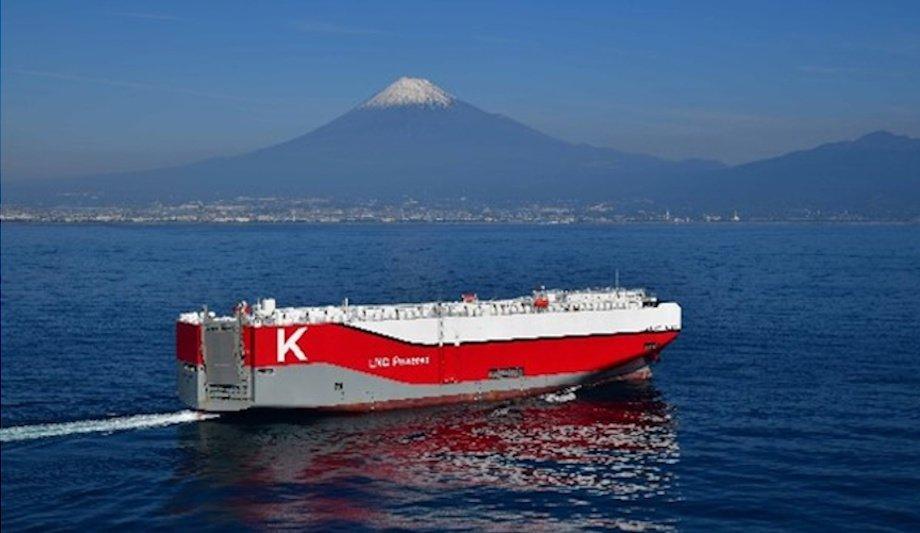Under Zero-Emission Accelerating Ship Finance (the Program), which is jointly operated by Development Bank of Japan Inc. (DBJ) and ClassNK, ClassNK evaluated the LNG-fueled car carrier ‘OCEANUS HIGHWAY’ (IMO No. 1046049), owned by Kawasaki Kisen Kaisha, Ltd. ("K" LINE). DBJ provided financing to "K" LINE.
In the shipping industry, where environmental regulations are becoming stricter as the industry moves towards decarbonisation, ClassNK evaluates ships based on a comprehensive scoring model jointly developed with DBJ from the perspective of ‘decarbonisation, environmentally friendly performance, and innovativeness,’ and DBJ provides investment and financing.
"K" LINE Environmental Vision 2050 policy
The project supports initiatives that contribute to the growth of decarbonisation from IR
The project supports initiatives that contribute to the transition to decarbonisation from both IR and financial perspectives. "K" LINE is actively promoting various initiatives to support the social transition to low- and zero-carbon under its "K" LINE Environmental Vision 2050 policy.
Recently, the company has been focusing on the development of the next-generation fuel ships to realise sustainable and environmentally friendly transportation. OCEANUS HIGHWAY, built by Shin Kurushima Toyohashi Shipbuilding Co., Ltd., was delivered in February 2025. It is designed to reduce environmental impact utilising LNG fuel.
Points of assessment of the ship
The following points were highly evaluated in this assessment of the ship:
(1) The use of LNG fuel makes a 25% reduction in carbon dioxide (CO2) emissions possible compared to conventional fuel oil.
(2) Reduction in the emission of nitrogen oxides (NOx), sulphur oxides (SOx), and particulate matter (PM) through the use of LNG fuel complies with the International Maritime Organization (IMO)'s NOx Tier III regulations and SOx regulations.
Efforts to contribute toward decarbonisation
The ship was given an ‘A’ rating as a ‘ship with high decarbonisation, environmentally friendly performance, and innovativeness,’ recognising that adequate environment-related investments have been made.
Through the expansion of the Program, DBJ and ClassNK will support shipping and shipbuilding companies’ efforts to contribute to the transition toward decarbonisation and work together to accelerate the transition toward decarbonisation in the entire maritime industry.










